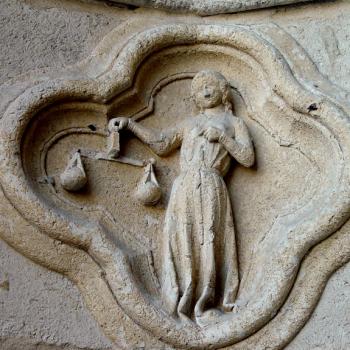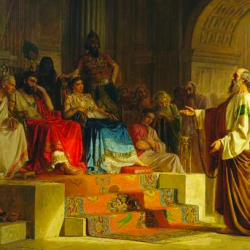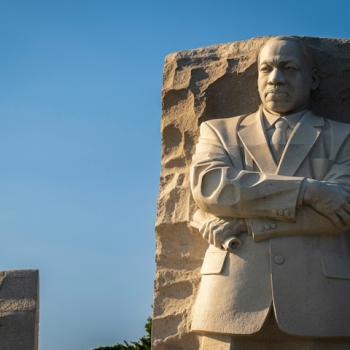Setting that important caveat aside, however, the film is both charming and insightful, capturing the extraordinary joie de vivre that is such a refreshing component of many African films while simultaneously underscoring the darker, often violent subtexts that often lie beneath their sunny exteriors. As one of the angry administrators reminds Rose, "the past is always in the present," and the violence, the tribal and racial cleansing, and the ambiguity of its hero's past lurks in the background even of this seemingly innocent story, intruding into Maruge's life despite his best efforts to shield him (and his young companions) from its harsh realities.
The importance of education; the way our drive for freedom impacts everything we do; the power of perseverance—all are explored by the film in timely (if not always profound) ways. But the most intriguing insight offered is a reminder of how important it is to be grateful to our political and cultural forefathers, and how vital it is to recognize both their extraordinary accomplishments and their inevitable mistakes. Few things will guide our futures as well or as clearly as remembering those who came before us, and upon whose shoulders we stand.
Maruge's classmates received an extraordinary blessing of which few of us can boast: the opportunity to live side-by-side with one responsible for the shaping their futures, and the chance to learn of his sacrifice and heroic suffering on their behalf first-hand. And perhaps just as importantly, they were given the chance to hear of his missteps and the things he would have done differently—and from his very own lips.
Even in a country as (relatively) young as America, we are already several generations removed from our founding fathers, and the effects of that removal are obvious. How quickly we forget that our extraordinary blessings are often the result of others' sacrifices, and how easily we ignore the important lessons to be learned from those in whose footsteps we invariably tread. As Americans, we are constantly looking to the future, constantly searching for to "make it bigger, better, and more American." But the future will be far less meaningful (and we will be far, far less worthy of it) if we refuse to recognize the contributions of those who came before.
The words of Rose's angry superior—"The past is always present"—were meant as a threat; his final, unpleasant attempt to remind her that Maruge was "damaged goods," and that she was foolish to expect his desire for learning to overcome the tragic baggage of his (and his nation's) past. But it is not a threat; at least, not exclusively. It is also an important encouragement to those of us inclined to focus too much on our own future. We must make the past always present, because that is a vital part of our ability to understand the time in which we now live. And it is the only way we will see clearly as to what our future can and should be—both for ourselves, and for our children.
(Maruge, now deceased, found the perfect capstone for his amazing story: in May 2009, he was baptized into the Catholic Church—a conversion which he attributes to his newly-won ability to read the Bible. The First Grader is available through Netflix's Watch Instantly service.)





